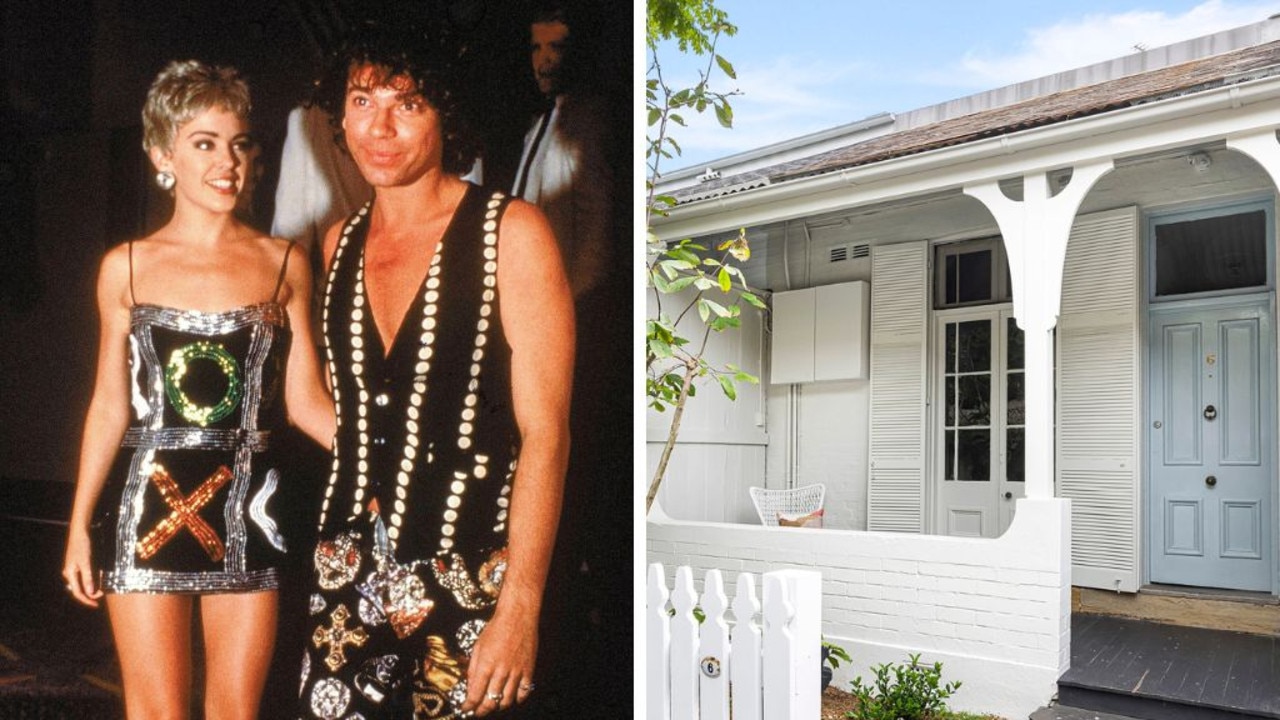Sydney’s eastern suburbs heroes helping survivors escape abuse and build better futures
From crisis accommodation to financial support, combating domestic violence requires a multi-pronged approach. These women share their experiences.
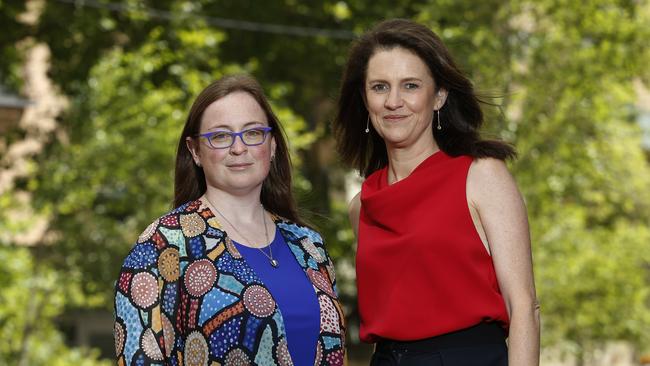
Wentworth Courier
Don't miss out on the headlines from Wentworth Courier. Followed categories will be added to My News.
Over the past year, Katie Viviers has come across more domestic violence victims than she can count.
She would have helped more than 100 women and children, directly or indirectly, in her role as chief executive of Darlinghurst-based not-for-profit organisation Open Support.
But it’s not something she ever gets used to.
“You don’t become immune to it,” she says. “Every time, it’s shocking.”
When women approach the organisation seeking crisis accommodation, they are initially untrusting and fearful.
“They don’t know what to expect,” Viviers says.
“There’s a lot of trauma involved and there’s a lot to process.”
But, over time, she sees women sharing their stories and building plans for the future: “Their story changes to one of hope.”
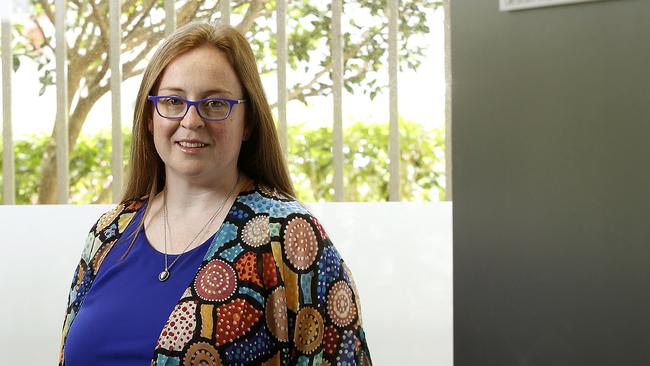
An estimated 17 per cent of Australian women aged 18 years and over had experienced violence by a partner since the age of 15 years, according to the Australian Bureau of Statistics Personal Safety Survey 2017.
The federal government committed more than $1.7bn to support the National Plan to End Violence against Women and Children 2022-32.
It includes funding for 500 frontline service and community workers to support women and children experiencing family violence, 10 days’ paid domestic and family violence leave, and the funding of education services dedicated to consent and respectful relationships.
A NSW Police Force spokesperson says police respond to incidents of domestic violence every day and it is a core part of general policing duties.
“The identification of behaviour involving coercive control is a critical part of our police response to protect victims of domestic violence,” they say.
The Sydney LGA had the highest recorded rate of domestic violence in the eastern suburbs last financial year, with 1061 domestic violence incidents, according to the NSW Bureau of Crime Statistics and Research.

This represents 426 cases per 100,000 people. There were 361 cases reported in the Randwick LGA (230 per 100,000 people), 176 in the Waverley LGA (237 per 100,000 people) and 124 in the Woollahra LGA (208 per 100,000 people).
Experts say that in the eastern suburbs, coercive control is a particular problem.
“Coercive control is a pattern of behaviour that can include tactics to isolate, degrade, destroy or control,” Viviers says.
“Their social circle becomes much smaller and control over their own life and decision-making is reduced. Coercive control is also a strong predictor of severe violence, and even homicide.”
Open Support, which is part of St Vincent’s Clinic, provides both crisis accommodation and transitional support for women and children escaping violence.
“We know that the need is far greater than what anyone can provide at the moment,” Viviers says.
“A lot of the women that we talk to may not identify as being victims when they first reach out. Things like coercive control or patterns of abuse that happen over time can really reduce someone’s autonomy and independence.
“There’s so much stigma around domestic violence. They’re too scared to talk about it in case they’re labelled a victim.”
The Covid-19 pandemic has had a big impact on the incidence of domestic violence.
“We know that rates of violence increased during Covid quite significantly,” Viviers says.
“It created a lot of pressures, and it was scarier for people to step out and make a change.
“Open Support saw a reduction in the number of referrals for crisis accommodation, which really surprised and shocked us because we knew domestic violence was happening more, but we think people chose the safety of what they knew. That’s bounced right back.”
Open Support can house four families at a time in its crisis accommodation and will grow that to 12 families over the next 12 months.
This is due to the construction of its new safe house.
The average length of stay is three months, with transitional support provided to help women find their own housing.
Eliminating the taboo around domestic violence is a major focus of Open Support.
It delivers a range of employee assistance programs to support people in abusive relationships and has also launched corporate education programs to teach employers how to recognise coercive or abusive relationships, and how to get help.
“I have heard stories where women look back at the beginning of the relationship and say they had red flags and didn’t see what it was,” Viviers says.
“They are little things that at the time you think it’s an odd quirk and you brush it off.”
Open Support also runs domestic and family violence corporate programs.
Its corporate program supports employees suffering from domestic and family violence anonymously.
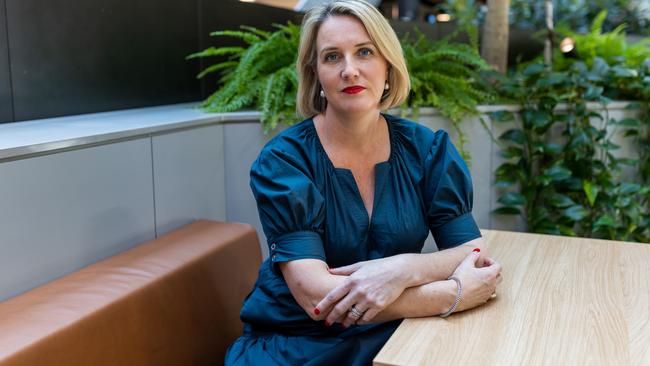
CommBank is one organisation leading the way when it comes to combating domestic violence through its Next Chapter program, which aims to help end financial abuse. CommBank executive manager of community investment Claire Dawson was a women’s adviser for the federal government in 2015 when domestic violence campaigner Rosie Batty, whose 11-year-old son was murdered by her ex-husband, was named Australian of the Year.
“She was very vocal about the fact that business needed to play a role to address the issue,” Dawson says.
“A group of staff at the bank took that call and said: ‘What are we doing? Are we doing enough?’ They initially looked at the support that we provided to our employees, then customers, and then ramping up the support that we provide to the community.
“Often before people go to a domestic violence support service, they will be talking to their bank, saying they want to leave but they can’t because they have no access to money.
“For people like that it becomes a choice between abuse or poverty.”
Many women in that situation also have low financial literacy and have had their confidence undermined.
Dawson also says a big issue for a lot of women in the eastern suburbs is that they are asset-rich on paper, which can limit access to government assistance.
CommBank customers can now call a community wellbeing specialist for assistance or, if it’s too difficult to phone, contact them via the CommBank app.
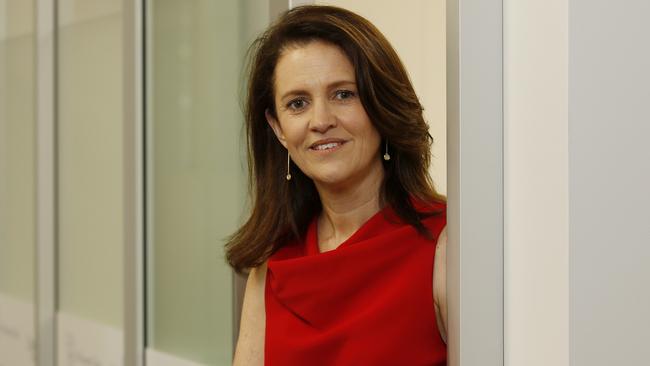
Training frontline staff in identifying financial abuse victims is also mandatory.
And CommBank has partnered with not-for-profit organisation Good Shepherd to create the Financial Independence Hub — a free service that provides confidential one-on-one financial coaching, tools and assistance support to people recovering from domestic violence and financial abuse, regardless of who they bank with.
Darling Point psychotherapist Erica Schuman says while many people associate domestic violence with low socio-economic areas, “it doesn’t discriminate”.
“I think people are shocked when they realise how many women and children are being subjected to this in the East,” she says.
“It’s also people’s misunderstanding of what domestic violence is. A lot of people come to me not recognising they’re in an abuse situation. Often there’s a lot of gaslighting.”
Schuman, who is also an Open Support committee member, says the book See What You Made Me Do by investigative journalist Jess Hill has helped raise awareness of coercive control.
“Sometimes people feel more comfortable using the word control rather than abuse,” she says.
While she doesn’t specialise in domestic abuse, Schuman hears about it often.
“I come across it more in adults who were subjected to domestic violence at home as children and the impact it has on a person’s life and the deep wounds that stem from that are pretty devastating,” she says.
“It has such a broad impact on the whole community without people realising. It’s something that people are often ashamed to talk about. You don’t get to hear the impact that it has on families.
“We need to change societal attitudes towards women. We need to empower men to be good fathers, to be good husbands, to honour women.”
NSW Domestic Violence Line: 1800 656 463
For more information on Open Support visit opensupport.org.au
For more information about CommBank’s Next Chapter program visit


